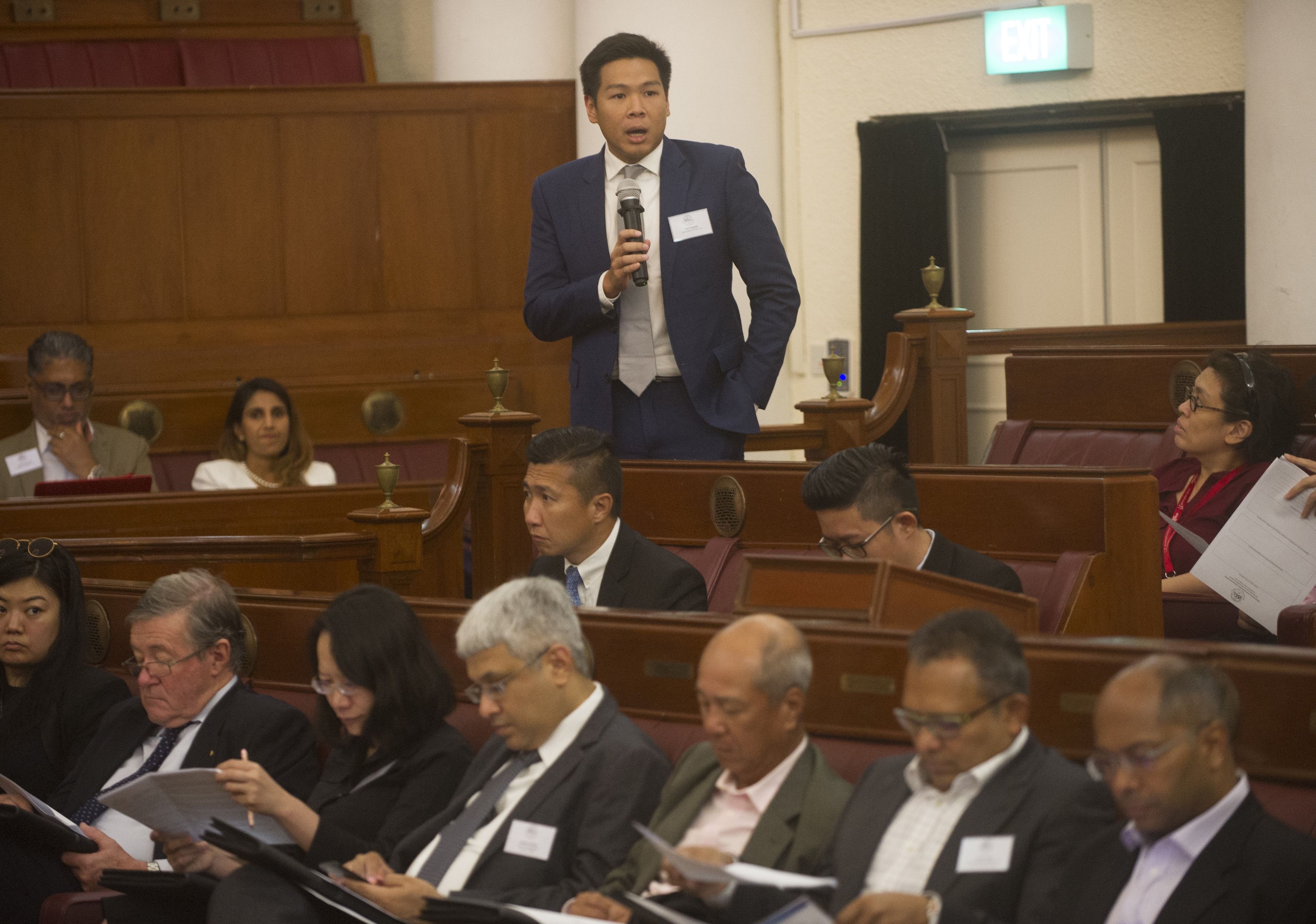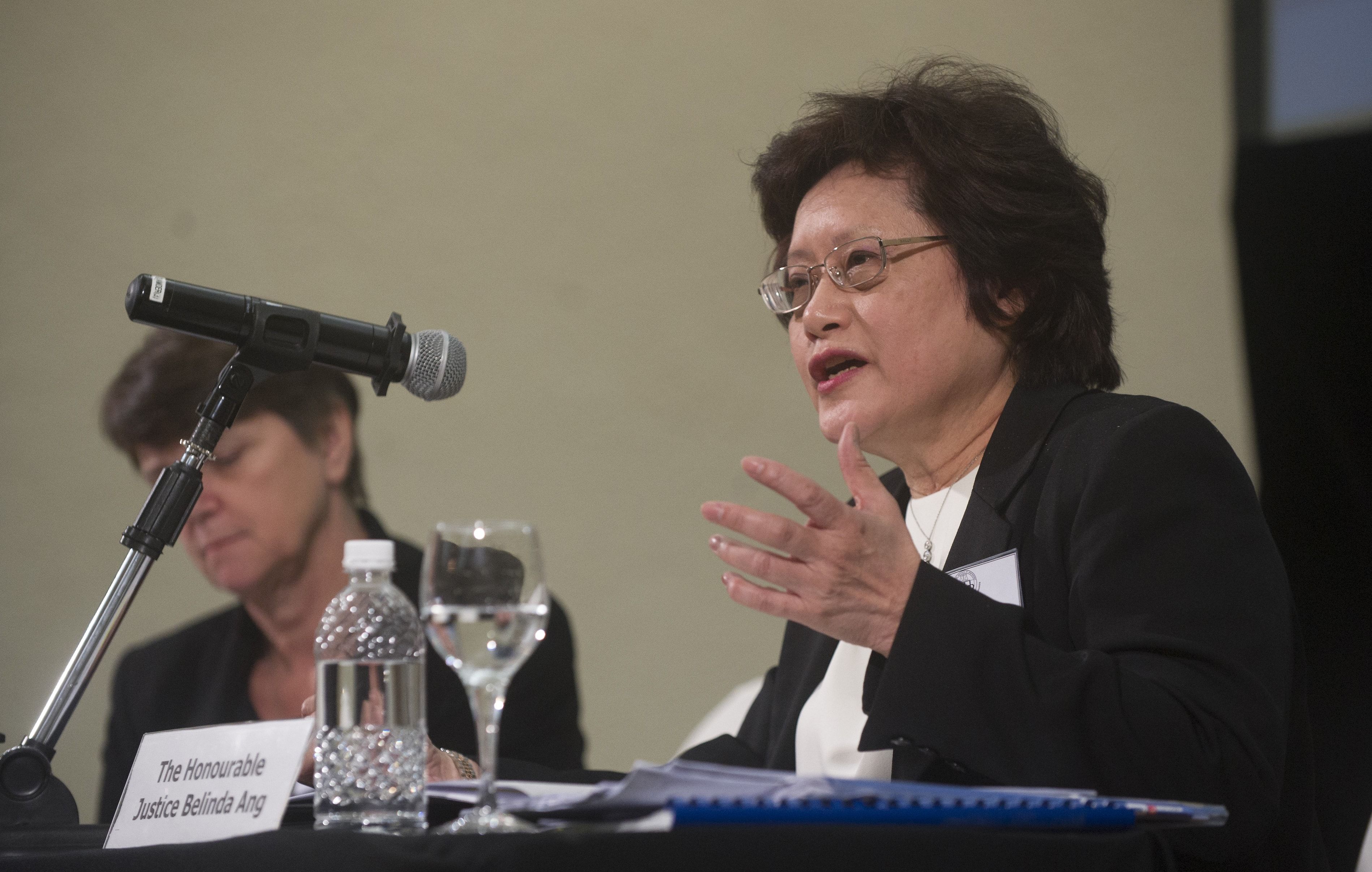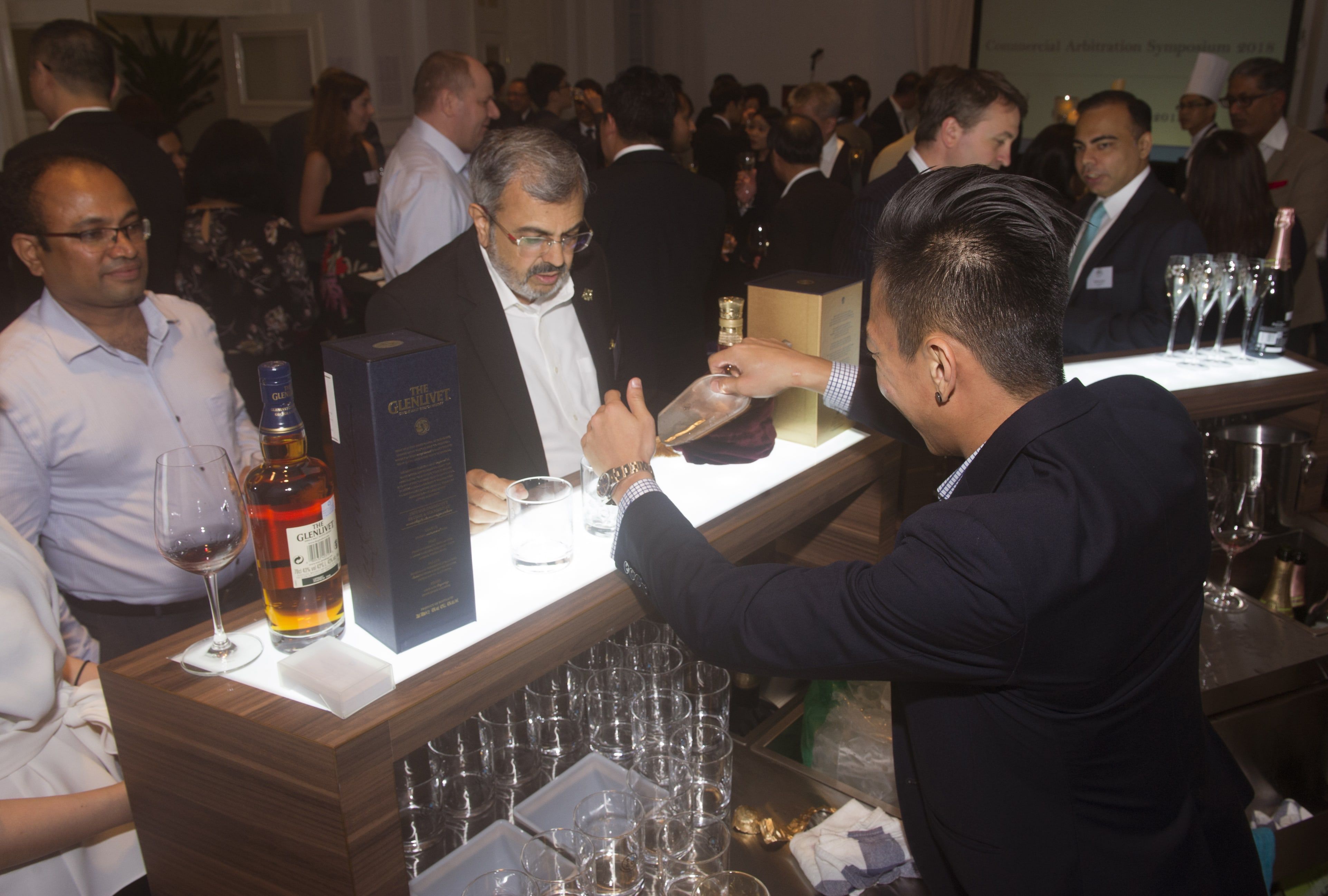The 10th anniversary of the SIArb symposium did not fail to live up to expectations. With a diverse number of thought-provoking questions submitted by the audience beforehand, each session navigated several areas of controversy, and also gave rise to some very helpful contributions from audience members based on their own experience (submitted within the confines of the "Chatham House" rules!). Last but not least, the all-female cohort of moderators for the sessions served as a radical and refreshing departure from the usual line-up of conference chairs.
 |
 |
 |
The symposium opened with a rousing discussion on the increasingly pro-active role played by institutions and whether there should be greater transparency on their decision making, particularly at the critical early stage when arbitrators are appointed and applications for appointment of emergency arbitrators, joinder and consolidation are determined. While there were opposing views on the need for decisions to be published, it was agreed that one solution might be distil issues which surface frequently and set them out as guidelines on the application of the institution’s rules. Along with the users of arbitration services demanding greater transparency is the complaint of escalating costs. The debate turned to whether the introduction by several institutions of expedited procedures in their rules and penalties on the tribunal for dilatory award delivery have had any real effect on lowering costs. Instead, the oft times chilling factor of due process and natural justice considerations would have a new lease of life in the context of summary and early dismissal procedures. The “Prague Rules” and whether a more “inquisitorial” approach would receive a warm reception in Asia prompted much discussion and if meaningful cost savings could be achieved, this approach may find much support in traditionally common law based Singapore. Following the money, the rise of third party funding in international arbitration was the topic that closed the session with enlightening commercial insights from the funders present.
Session two opened with a discussion on who should arbitrate, and moved on to a discussion about "expert" arbitrators, and diversity generally. The debate moved to the highly contentious topic of conflicts of interest and disclosure of arbitrators. One key question was whether there should be limits to the number of appointments that arbitrators can receive from law firms, with a number of opposing views expressed. The next area tackled was in the realm of the tribunal's powers, and what sanctions are available to tribunals to penalise noncompliance with procedural or interim orders. A recent development in India was mentioned, whereby tribunals have the option of approaching the Courts to assist with enforcing compliance with orders, including by issuing contempt orders, where appropriate. The tribunal's power to order security for a claim was also discussed within this topic, which included a comparison of the threshold applied by Singapore tribunals for security for claim orders to the threshold applied in other jurisdictions. After a brief discussion on confidentiality, and whether the oft touted benefit of confidentiality for commercial arbitration is more imagined than real, the discussion moved to mediation. The possibility of the arbitral tribunal also acting as mediator was explored, with diverse examples proffered by the audience from their personal experience in various jurisdictions.
Session three had a very different feel to the first two sessions, with the focus more on the interaction of the Courts with international arbitration. The session featured a lengthy discussion on the merits of emergency arbitrator relief as compared to interim Court relief, which included some debate on the enforceability of interim (and emergency) arbitrator awards. The delegates also benefited from the participation of moderators Justice Belinda Ang and Judith Gill QC, including discussion of some of the latest arbitration-related cases to emerge from the Singapore courts.
Finally, to round off a very stimulating afternoon, participants were treated to a fabulous cocktail reception sponsored by Pernod Ricard. The reception centred around the cocktail bar which featured an array of luxury whiskies, champagnes and other refreshments, very hospitably served by the full Pernod Ricard team in attendance.
CLICK HERE to view more photos.
Reported by:
Ms. Sapna Jhangiani – Partner, Clyde & Co Clasis Singapore Pte Ltd
Ms. Smitha Menon – Partner, WongPartnership LLP
Mr. Tay Yu Jin – Vice President, SIArb; Chairman, Arbitration Bar Committee
